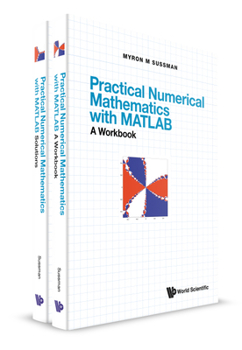Practical Numerical Mathematics With MATLAB: A Workbook / Solutions
This workbook is intended for advanced undergraduate or beginning graduate students as a supplement to a traditional course in numerical mathematics and as preparation for independent research involving numerical mathematics. Upon completion of this workbook, students will have a working knowledge of MATLAB programming, they will have themselves programmed algorithms encountered in classwork and textbooks, and they will know how to check and verify their own programs against hand calculations and by reference to theoretical results, special polynomial solutions and other specialized solutions. No previous programming experience with MATLAB is necessary.
Format:Hardcover
Language:English
ISBN:9811246009
ISBN13:9789811246005
Release Date:August 2021
Publisher:World Scientific Publishing Company
Length:772 Pages
Related Subjects
Algebra & Trigonometry Algorithms C C & C++ Windows Programming Computer Science Computers Computers & Technology Development Education & Reference Languages & Tools Mathematics Programming Programming Languages Science & Math Software Software Design, Testing & Engineering Structured Design Systems Analysis & DesignCustomer Reviews
5 customer ratings | 5 reviews
There are currently no reviews. Be the first to review this work.




















